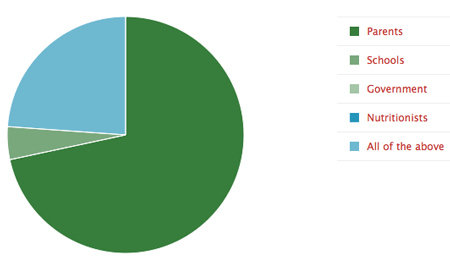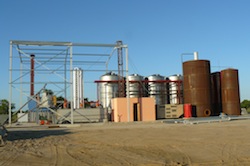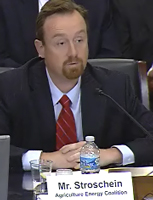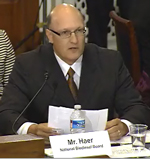
President Obama will visit TPI Composites, a wind manufacturer, in Newton, Iowa today as he urges Congress to act on the “To Do List,” specifically highlighting the need to invest in clean energy by passing legislation that will extend the Production Tax Credit (PTC) to support American jobs and manufacturing in the wind industry alongside an expansion of the 48C Advanced Energy Manufacturing Tax Credit that supports American-made clean energy manufacturing.
In addition, the Iowa Renewable Fuels Association (IRFA) is urging Obama to take action on reducing U.S. foreign oil dependence by announcing his Administration’s approval of the EPA-recommended 1.28 billion gallon biodiesel volume requirement for 2013 under the Renewable Fuel Standard (RFS2).
In a letter sent to the White House, IRFA reminded President Obama that his visit to a Newton wind blade facility will take him right next door to another renewable energy employer in Newton, the biodiesel plant owned and operated by REG (REG Newton), and encouraged the President to expand the focus of his visit to include specific steps to strengthen the U.S. biodiesel industry.
“Approving the 1.28 billion gallon RFS2 biodiesel volumes for 2013 is one specific action that you can take to promote the continued growth of domestic advanced biofuels production and green jobs without having to wait for Congressional approval,” said IRFA President Brad Albin. “The RFS2 is one of the most effective energy policies in American history, and your Administration can lead the way by showing its support for EPA’s modest proposal at a time when the biodiesel industry is poised for success.”
In June 2011, EPA proposed raising the RFS2 volume requirement for biodiesel from 1 billion gallons in 2012 to 1.28 billion gallons in 2013 after rigorous review demonstrating that the requirement is achievable in a sustainable manner. Nonetheless, in December 2011, the Obama Administration announced it was delaying the final 2013 RFS2 volume requirement, arguing the proposal need further review. Nearly six months later, the U.S. biodiesel industry is still waiting on the Obama Administration’s approval. A recent economic analysis by Cardno ENTRIX shows that increasing the biodiesel volumes to 1.28 billion gallons has the potential to add more than 10,000 jobs to the U.S. economy.


 There are over 300 locally and independently operated FS FAST STOP and FAST STOP Express locations so GROWMARK Renewable Fuels Product Manager Brigette Harlan says they are carefully researching all the steps that need to be taken to offer E15 to guide them. “We’re working very closely with the
There are over 300 locally and independently operated FS FAST STOP and FAST STOP Express locations so GROWMARK Renewable Fuels Product Manager Brigette Harlan says they are carefully researching all the steps that need to be taken to offer E15 to guide them. “We’re working very closely with the  Harlan says they recently updated their Biodiesel Quality Program, which has been in place since 2007. “It includes a specification that we require of all of our suppliers that’s tighter than the ASTM specifications, and also includes storage and handling and appropriate blending guidelines,” she said. “We just want to make sure that we are putting out there the best quality product that we can.”
Harlan says they recently updated their Biodiesel Quality Program, which has been in place since 2007. “It includes a specification that we require of all of our suppliers that’s tighter than the ASTM specifications, and also includes storage and handling and appropriate blending guidelines,” she said. “We just want to make sure that we are putting out there the best quality product that we can.” Aviation and clean technology leaders have joined together to launch the
Aviation and clean technology leaders have joined together to launch the 
 “This research is demonstrated proof of the viability of ‘generation 2.0 ethanol,’” NCERC Director John Caupert said. “By utilizing existing technologies readily available in the commercial marketplace, the Center was able to produce a biofuel that builds upon the strengths of conventional corn ethanol and the promise of cellulosic ethanol, thus making bolt-on cellulosic ethanol a reality.”
“This research is demonstrated proof of the viability of ‘generation 2.0 ethanol,’” NCERC Director John Caupert said. “By utilizing existing technologies readily available in the commercial marketplace, the Center was able to produce a biofuel that builds upon the strengths of conventional corn ethanol and the promise of cellulosic ethanol, thus making bolt-on cellulosic ethanol a reality.”


 “American agriculture is the key to the successful development and commercialization of clean, abundant, renewable, domestic energy and biobased products in this country, and the ‘core’ Farm Bill energy programs provide American farmers, ranchers and entrepreneurs with the tools they need to make it happen,”
“American agriculture is the key to the successful development and commercialization of clean, abundant, renewable, domestic energy and biobased products in this country, and the ‘core’ Farm Bill energy programs provide American farmers, ranchers and entrepreneurs with the tools they need to make it happen,” 
